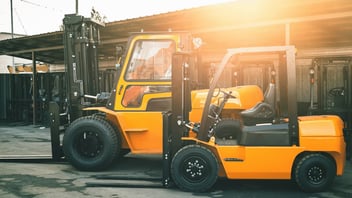For most of its history, men have dominated the construction industry. Women workers appeared only as outliers or token employees to meet diversity requirements. While that has slowly started to change in recent decades, with more women finding their places in the industry, it’s still challenging for them to get their foot in the door.
What can we do as business owners and construction supervisors to help women workers feel welcome in the construction industry?
Change Your Recruiting Language
Everything we do is perceived by others subjectively, including the words we choose. When it comes to creating a recruitment advertisement, the words you choose determine the gender of the person that might find your ad appealing or intriguing.
Even if you're not explicitly asking for a man to respond to your advertisement, there are words we unconsciously associate with each gender. If you look for someone confident, dominant, or ambitious, you’re going to attract male recruits. If you use words like loyal, responsible, and cooperative, you’re going to attract female recruits.
If you find you’re getting more male applicants than female, start by looking at your recruitment language and see if maybe you’re subconsciously driving away women who might otherwise be interested in working in the construction industry.
Offer Equal Opportunities
Workplace discrimination comes in all shapes and sizes, from apprenticeships opting for male applicants over female, to giving a man a promotion over a woman with the same skills and experience. It’s important to break these habits and stereotypes and turn them into opportunities for the future.
Stop looking at gender or even names when it comes to offering opportunities for employment and advancement. A person’s gender plays little to no role in their skills or abilities. We’ve simply allowed ourselves to become mired in the decades-old gender divide, especially in heavily male-dominated fields.
Break that stereotype and offer equal opportunities to your employees regardless of their gender.
Provide Proper PPE
While men and women are capable of carrying out the same work, they are often built differently. Even things like personal protective equipment made for men may not be made to fit women properly. Eye protection, for example, is shaped for broad and square male faces. For a softer or rounder female face, these goggles won’t fit correctly, leaving eyes vulnerable to injury.
Consider the differences between the male and female form when choosing PPE for all sorts of different applications and situations. It sounds like a simple change to make, but properly fitting PPE will help keep your entire crew safe at a reasonable cost and provide peace of mind.
Create Mentorships
It’s easier to see yourself in a job when there’s someone in a similar position you can relate to. This becomes challenging in the construction industry for women who might not have other women to look up to.
The goal here is to create support for women in their careers so they can become mentors in time themselves, and help build the diverse construction industry of the future.
If, as a business owner, you’re not sure where to start or find yourself mired in old stereotypes, consider seeking out help from existing programs. The National Association of Women in Construction offers a mentorship program. Consider contacting them for advice on creating a diverse team and building up mentors to help new individuals in the industry find someone they can look up to.
Building the Future for Women in Construction
The construction industry faces a number of challenges, from pandemic-related scheduling problems to a growing labor shortage that will continue to get worse as older workers reach retirement age. We’ll need women workers in the construction industry if we hope to thrive in the coming years.
The whole goal of the construction industry is to build the future. Women in the industry will play a large part in that, but only if we can make them feel welcome and encourage them to build a career in the industry. Companies industry-wide need to take a step back and assess their practices to see how they can make the sector more welcoming for women.
Author
Evelyn Long is the editor-in-chief of Renovated, where she covers construction labor and safety advice for industry professionals. Readers can keep up with Evelyn’s work on Twitter.






Leave a Comment